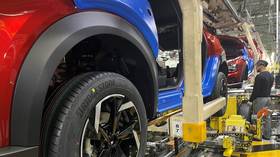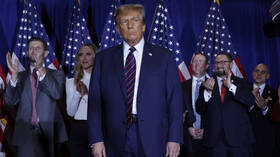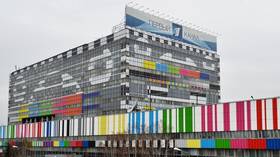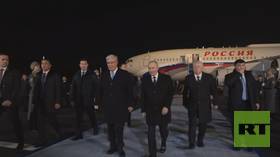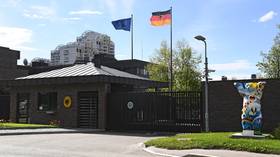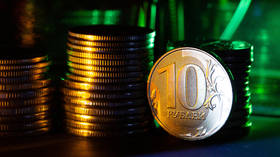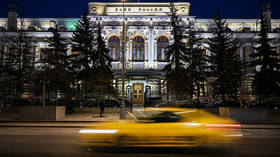Russia would welcome back foreign car makers – Kremlin

The Russian government would welcome a return of foreign auto makers that left the country due to sanctions, as it would increase competition, improve quality, and reduce prices for consumers, Kremlin spokesman Dmitry Peskov said on Thursday. The comment came in response to a report earlier this week that Japan could ease restrictions on car sales to Russia.
At a press briefing in Moscow, Peskov said such a decision would be “pragmatic.”
“Many countries that impose restrictions later pursue their own interests and issue licenses to exclude [certain items] from the lists. This is a very easy thing to do. It’s all very cynical and pragmatic – they do whatever is profitable,” said Peskov.
Japan joined fellow G7 countries in imposing economic and trade sanctions against Russia after the escalation of the Ukraine conflict in 2022. Japanese car makers Nissan, Toyota, Honda, and Suzuki suspended exports of their vehicles to the country and ended production on Russian soil. The share of Japanese cars on the Russian market dropped threefold in 2022, from 18% to 6%, according to data from analytical agency Avtostat.
In July 2023, Japan banned the export of new and used electric and hybrid cars to Russia, as well as cars with combustion engines of more than 1.9 liters.
Business daily RBK reported earlier this week that the Japanese trade restrictions had been “reinterpreted,” and Russian buyers were now allowed to buy so-called “mild hybrids” at auctions. The export ban was reportedly removed from cars such as the Honda Fit, Suzuki Swift, and several models from Mazda and Mitsubishi.
The publication quoted a representative of a Russian export company as saying that although sanctions have not been lifted, Japanese brokers and exporters, hit by slowing sales, have discovered a loophole in restrictions.
Japanese television outlet Asahi confirmed the information in a report on Wednesday, quoting local car dealers as saying they are trying to boost business, and exporters have started looking for loopholes to continue trade.
In September, Russian Foreign Ministry spokeswoman Maria Zakharova said that Japan had lost the Russian car market for a long time, and by attempting to isolate Moscow, Tokyo ended up hurting itself.
In the interview on Wednesday, Peskov noted that if foreign automakers do return to Russia, competition with domestic and Chinese firms will develop, which in turn will lead to Russian consumers getting better quality goods for less money.
Japanese car brands have enjoyed popularity in Russia, especially those in the used car segment, with Avtostat’s figures showing that as of July 1 of this year, 33.3% of all vehicles in the country were Japanese.
